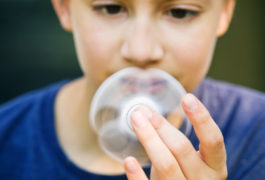Autistic people may have trouble tuning out distractions
Pupil response suggests autistic people have atypical activity in a part of the brain that regulates attention.

Pupil response suggests autistic people have atypical activity in a part of the brain that regulates attention.

A study that followed 126 autistic people in England from their preteen years to age 23 found little improvement in their behavioral and emotional problems.

Some of the inherited variants implicated in autism also increase the odds of schizophrenia, bipolar disorder, depression or attention deficit hyperactivity disorder.

Mutations in a gene called ZNF292 lead to a variety of developmental conditions, including autism and intellectual disability.

Pregnant women’s use of acetaminophen may increase the odds of autism and attention deficit hyperactivity disorder in their children.

People with attention deficit hyperactivity disorder may carry certain rare, harmful mutations in many of the same genes as people with autism.

A collection of rare genetic variants associated with autism and schizophrenia also seem to increase a person’s odds of having attention deficit hyperactivity disorder.

Mutations in the gene CSDE1 lead to a constellation of developmental delays and conditions, including autism, according to a new study.

A tiny chunk of the brain’s emotion enter, the amygdala, is enlarged in some autistic children; the larger this piece, the more anxious and depressed the child is likely to be.

The severity of autism tracks closely with that of attention deficit hyperactivity disorder.